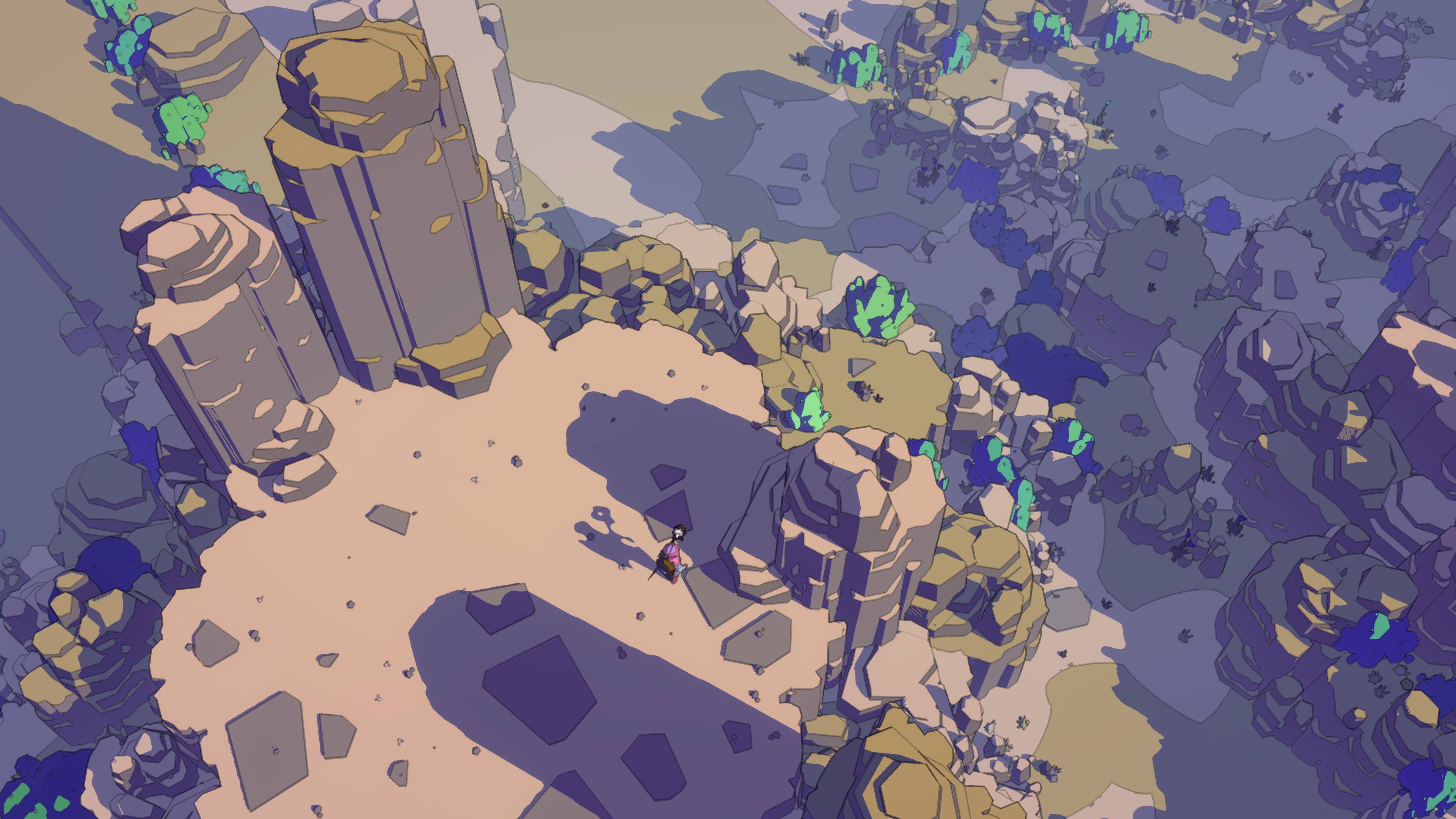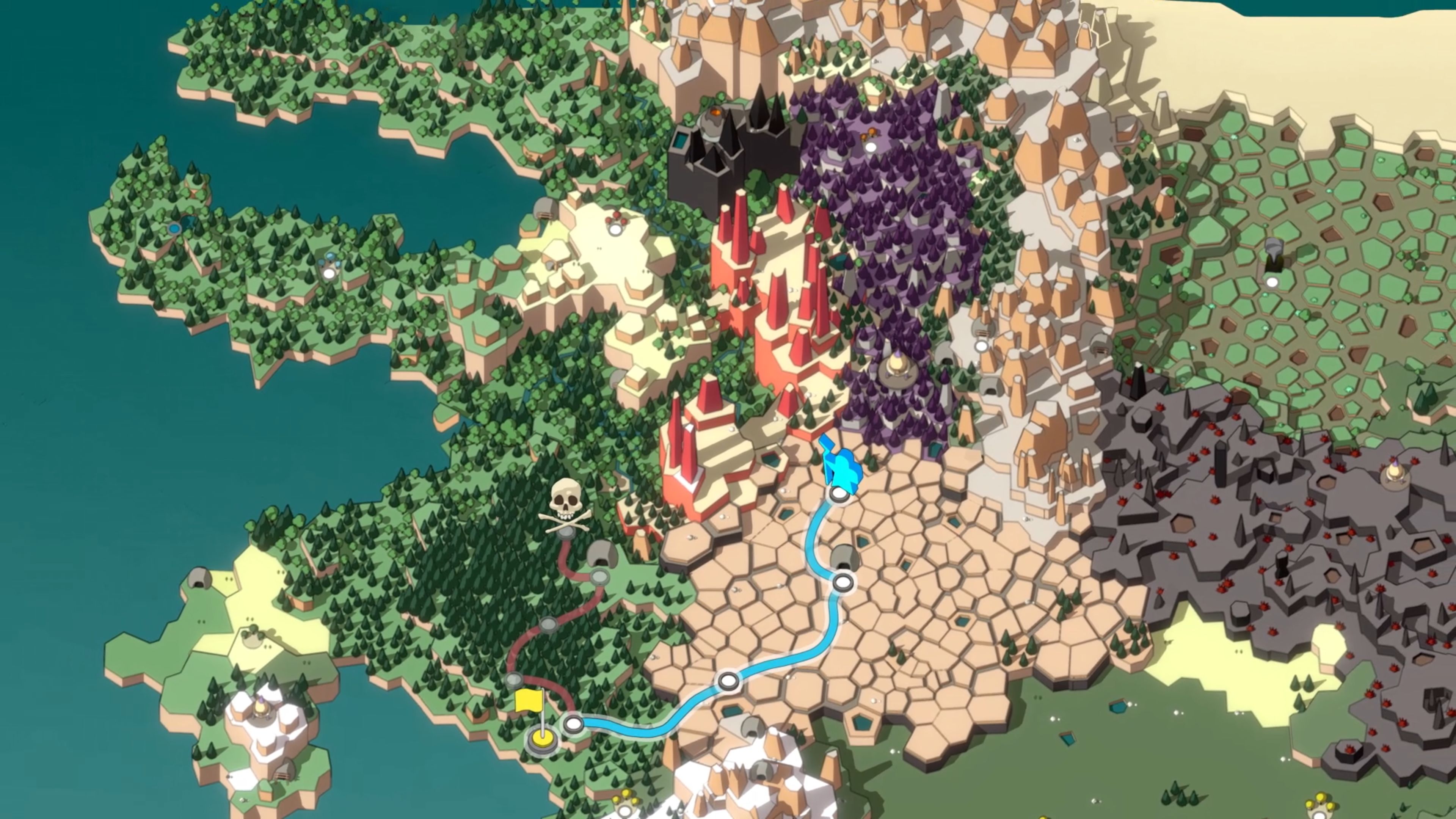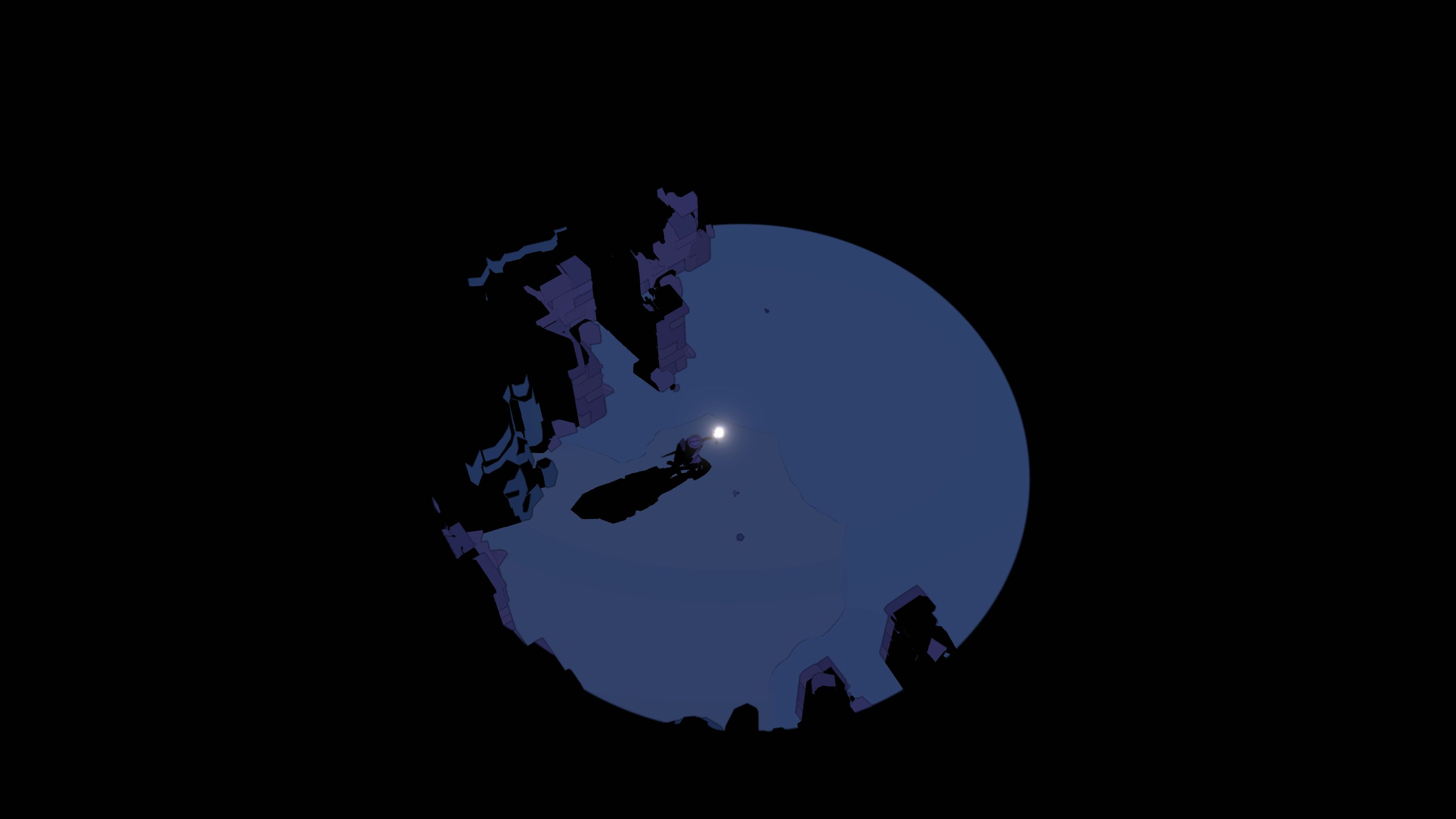Unexplored 2 is a bold, ambitious roguelike about adventuring across a vast world
"Unexplored was more or less a game to prove the technology. And now it's really opening the world and making it much grander."
It started, as so many games do, with Lord of the Rings. But not with the fantasy tropes of elves and dwarves, goblins and wizards. The vision for Unexplored 2 started with adventure—that sense of a grand journey, the fellowship crossing all of Middle-earth on a quest to save it. You need to feel isolated and small in a vast world. You need to carve your own path. And you definitely need to get out of the dungeon.
Unexplored was good. But Unexplored 2 is the game Dormans really wanted to make.
"We want to put the adventure first, and really try to double down on the sense of narrative and accomplishing this thing," says creator Joris Dormans. "That's one of the things that I really love about roguelikes: If you pull off a win, it really is your win. It's not just the hoops that we set up for you to jump through. It's your story. And that story becomes so much more interesting if there are actually narrative choices in there, with consequences, with a history that you've built up with the world. What I hope is that when players beat the game for the first time... I almost want them to feel sorrow for having to leave that world behind, because they are invested in it. I don't know if we can pull that off, but that's a design target for me."
The first Unexplored, released on Steam in 2017, did not have these ambitions. It was a more traditional roguelike, a quest through 20 floors of the Dungeons of Doom in search of the magical amulet. What set it apart from so many others was its subtly brilliant procedural generation, which laid out an entire dungeon with more care than a jumble of randomized floors. It seeded in little mysteries, bits of story, and knowledge of what was on other floors, so that a random book you read on level three could actually allude to something you'd find an hour later, six floors down. It doesn't sound like a big deal until you experience it yourself, but no other roguelike I've played weaves together storytelling and level design in the same way.
In other words, Unexplored was good. But Unexplored 2 is the game Dormans really wanted to make.
"Unexplored was more or less a game for me to prove the technology, that we could do the content generation in the right way," he says. "And now it's really opening the world and making it much grander. Here we're doing something similar: Instead of planning out a dungeon, we're planning out the entire map. So we know what's going to be on the map and we can use the same sorts of foreshadowing techniques to fill in every individual level and try to make it feel as coherent as we possibly can."

You can see Unexplored 2's greater interest in its world in the trailer: How the camera is pulled back, how the new art style, with an unmistakable Moebius vibe, draws the eye to alien trees and ancient ruins. Dying, too, is important. When you die in Unexplored 2, you can start a new character in that same world, a descendant taking up the mantle of adventure years later. Your actions between runs will carry over and leave a permanent mark on the world—not necessarily the minutiae of that chest you opened is in the same place and empty years later, but the broad strokes of how you affected the world.
Dormans didn't go deep into too much detail—Unexplored 2 is still in development, and he said they're still pinning down what will carry over between runs—but he did offer some examples. Say you make your way through a forest and run into a pack of wolves. Flee from them instead of killing them, and when you return with another character on a later run, they could be more powerful.
The biggest gaming news, reviews and hardware deals
Keep up to date with the most important stories and the best deals, as picked by the PC Gamer team.
Over multiple runs, it will be possible to make the world very, very difficult, to the point that you may need to abandon it and start with a clean slate. Unexplored will be the rare roguelike where you can play to win the next run, not just the current one.
The quest never changes: Cross the map from west to east and destroy a staff, Unexplored 2's version of delivering the One Ring to Mt. Doom. But as with the procedural generation's foreshadowing, you may want or even need to take actions in a doomed run that set your later characters up for success.

I want you to plan ahead, but it's not just about making the journey. It's about determining what your objectives are going to be. What route you're going to take.
Joris Dormans
"You need to dispose of this staff and go to a place that's dangerous, and there might be a lot of things there that you need to deal with," he says. "And there might be tools seeded into the world that are designed specifically to help you deal with the hazards that the final levels offer. But that might be in a remote location on the other side of the map. So you might, at one point, learn about a famous sword or whatever for killing dragons or something. And then you might decide to go and try to get that so you can move it to a safer location, and then leave it there for one of your successors to pick it up."
Things like legendary weapons will be part of Unexplored 2's savvy procedural generation, and you'll find hints of them scattered about the world or from NPCs in towns, another new addition. Crucially, though, any quest you undertake to find these objects will be totally free-form. There are no traditional RPG-style fetch quests, no missions handed out by NPCs. Yours objectives are completely yours to determine.
"What we're really aiming for is, we want you to be on the Council of Elrond, right?" says Dormans. "I want you to plan ahead, but it's not just about making the journey. It's about determining what your objectives are going to be. What route you're going to take. Those high-level decisions. Because that's when you really are doing that adventure. You should be invested in your own quest. That's why we don't want to have fetch quests. We want you to decide at one point: Okay, it's a good opportunity to go in that direction and see if I can find this item that I've been hearing rumors about, because I need it for the quest and I can get it now. So maybe a guy that I play in a different run could benefit from it. It is ambitious and we have a lot of these systems set up. One of the biggest challenges that we face is that it's somewhat uncharted."
It's an ambitiously open design for a roguelike, especially for a small team of five core developers, including a dedicated artist and a dedicated musician. On top of the code that came over from the first Unexplored, there's quite a bit more that's new. Combat is completely overhauled, there's a day/night system, you can hunt and will need food to survive. Characters will have "backgrounds" that determine some of their skills and interactions. Dormans also showed me an early implementation of an AI companion, which he hopes to expand with co-op support. Because there's no Frodo without Samwise.

"Making sure players approached this game with the right frame of mind is going to be very important. That's going to be different because we don't have the resources to make a fantasy hack-and-slash brawler. You need a much bigger team for that. But we can make this game. We're an indie team. It's an indie title. It will be a little bit rough around the edges and some ways but I think that's actually good for the experience… We're aiming for an experience that not a lot of games are aiming for. But we think it is a very interesting experience."
At the very least, finding out will be an adventure. Like the first Unexplored, Unexplored 2 will start life with a form of early access, but not via Steam this time—it'll be through Open Access on Fig today, which you can read about here. How players react will help it find its path from there.

Wes has been covering games and hardware for more than 10 years, first at tech sites like The Wirecutter and Tested before joining the PC Gamer team in 2014. Wes plays a little bit of everything, but he'll always jump at the chance to cover emulation and Japanese games.
When he's not obsessively optimizing and re-optimizing a tangle of conveyor belts in Satisfactory (it's really becoming a problem), he's probably playing a 20-year-old Final Fantasy or some opaque ASCII roguelike. With a focus on writing and editing features, he seeks out personal stories and in-depth histories from the corners of PC gaming and its niche communities. 50% pizza by volume (deep dish, to be specific).

